Publications
Articles, publications, books, tools and multimedia features from the U.S. Institute of Peace provide the latest news, analysis, research findings, practitioner guides and reports, all related to the conflict zones and issues that are at the center of the Institute’s work to prevent and reduce violent conflict.
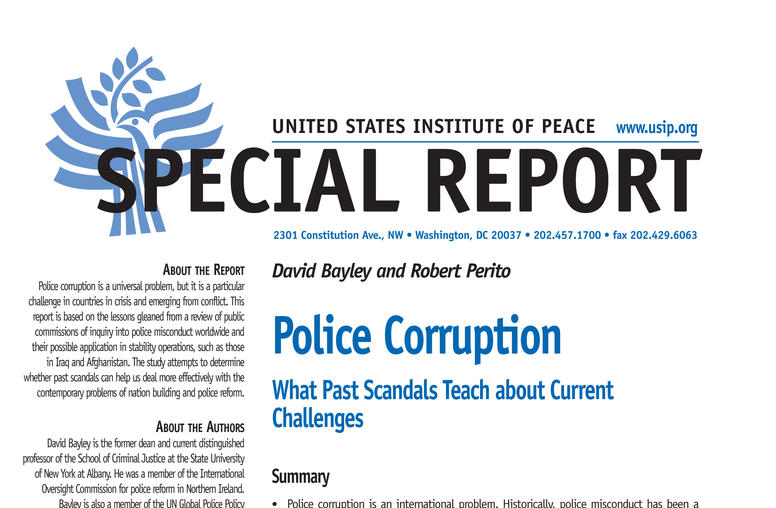
Police Corruption
Police corruption is a universal problem, but it is a particular challenge in countries in crisis and emerging from conflict. This report is based on the lessons gleaned from a review of public commissions of inquiry into police misconduct worldwide and their possible application in stability operations, such as those in Iraq and Afghanistan.
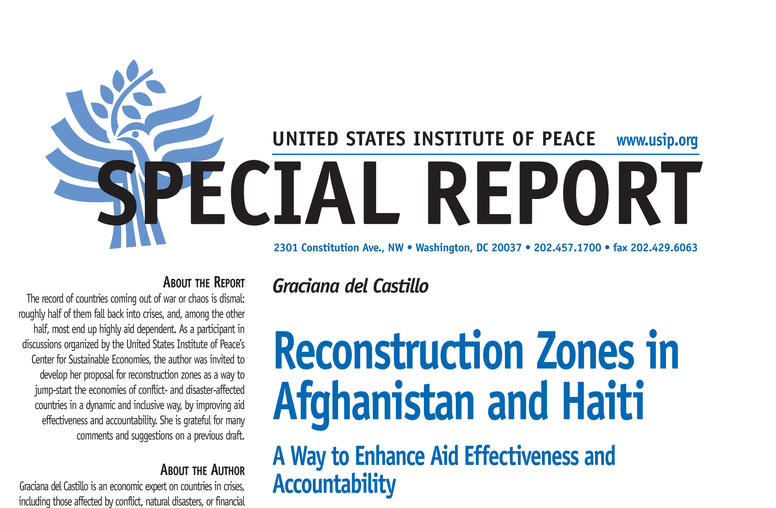
Reconstruction Zones in Afghanistan and Haiti
The record of countries coming out of war or chaos is dismal: roughly half of them fall back into crisis. Among the other half, most end up highly aid dependent. The author of this Special Report was invited to develop her proposal for reconstruction zones as a way to jump-start the economies of conflict- and disaster-affected countries in a dynamic and inclusive way, by improving aid effectiveness and accountability.
Haiti in Waiting
Former USIP Jennings Randolph Peace Scholar Louis-Alexandre Berg, who recently returned from a trip to Haiti, provides an update on the political situation and Haitian President Michel Martelly’s plans to rebuild the conflict- and disaster-prone country.
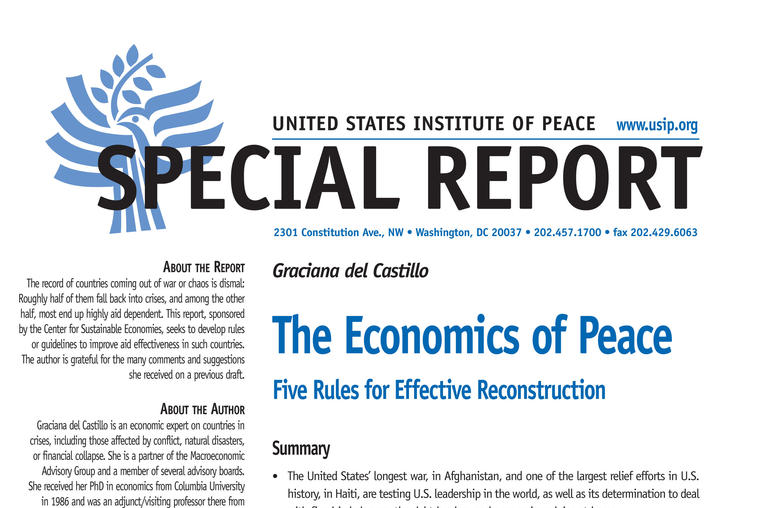
The Economics of Peace
Efforts to rebuild economies in postconflict zones around the world underscore a central lesson: development practices that work in peaceful countries often don’t apply to countries in transition.
Senior Official to Discuss U.N. Policies at USIP
The need for collaborative, multilateral action at the United Nations and on global problems is growing, but so are the budgetary pressures on the U.S. government’s foreign affairs spending. That collision of factors provides the context for a scene-setting address at the United States Institute of Peace (USIP) by Esther Brimmer, the assistant secretary of State for International Organization Affairs.
Haiti's Progress
Robert Maguire, chairman of the USIP Haiti Working Group and professor at the Elliott School of International Affairs at George Washington University, visited Haiti earlier this month to meet with government officials concerning Haiti’s current political impasse. He provides an update on the situation.
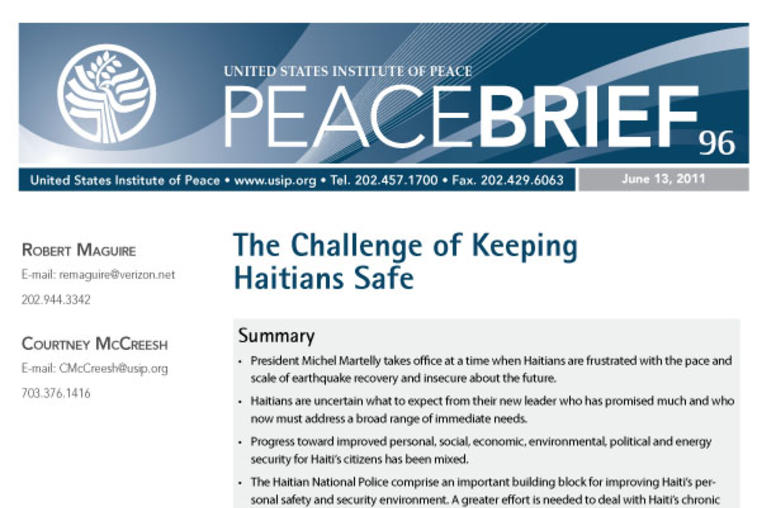
The Challenge of Keeping Haitians Safe
Robert Maguire, Chairman of USIP's Haiti Working Group, analyzes the various aspects of security – political, economic, personal and criminal – in Haiti.
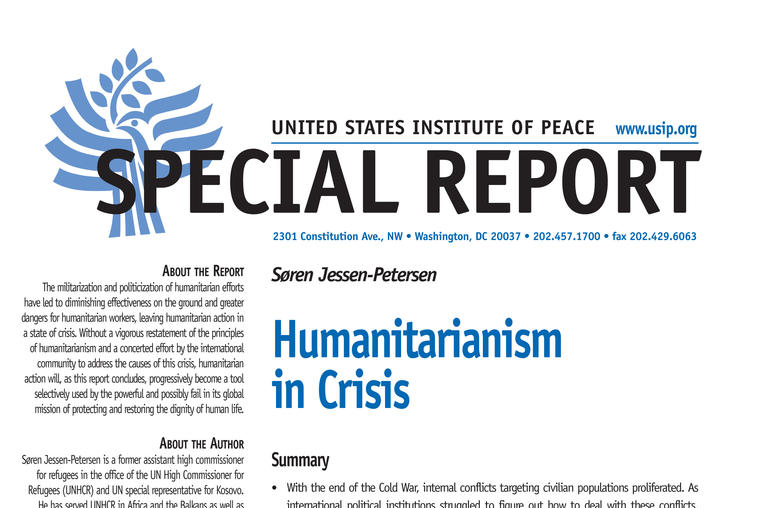
Humanitarianism in Crisis
The militarization and politicization of humanitarian efforts have led to diminishing effectiveness on the ground and greater dangers for humanitarian workers, leaving humanitarian action in a state of crisis.
Haiti's President-Elect Visits Washington
USIP’s Bob Perito discusses Haitian President-elect Michel Martelly’s recent visit to Washington, DC and what kind of policies the new Haitian government may pursue.
Haiti's Presidential Elections
USIP’s Bob Perito discusses the recently released preliminary results of Haiti’s presidential election and what it means for Haiti’s recovery.